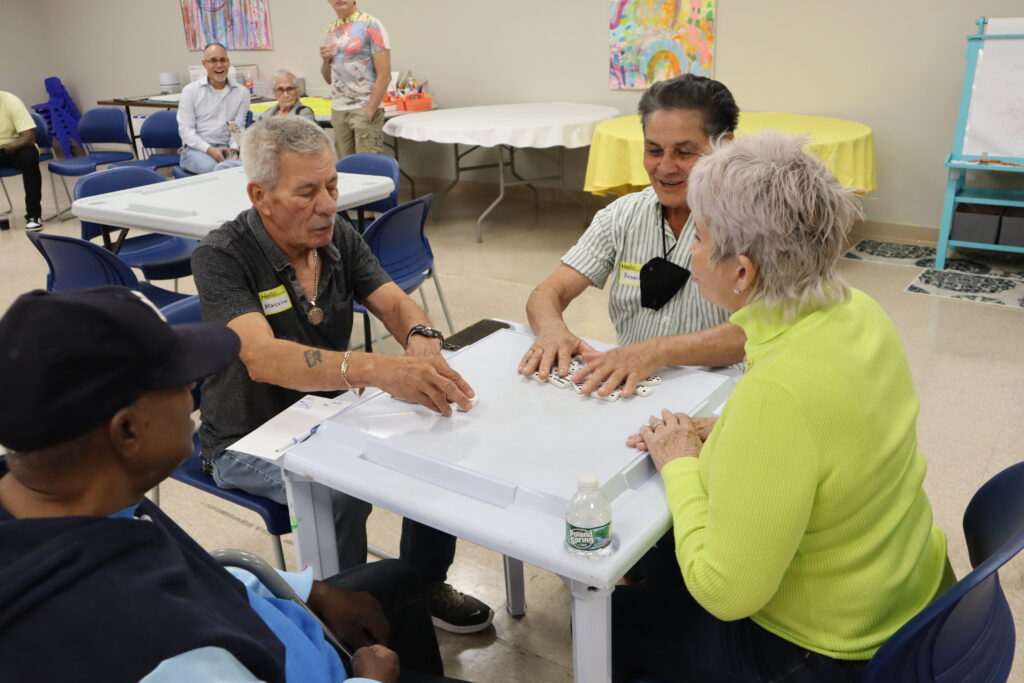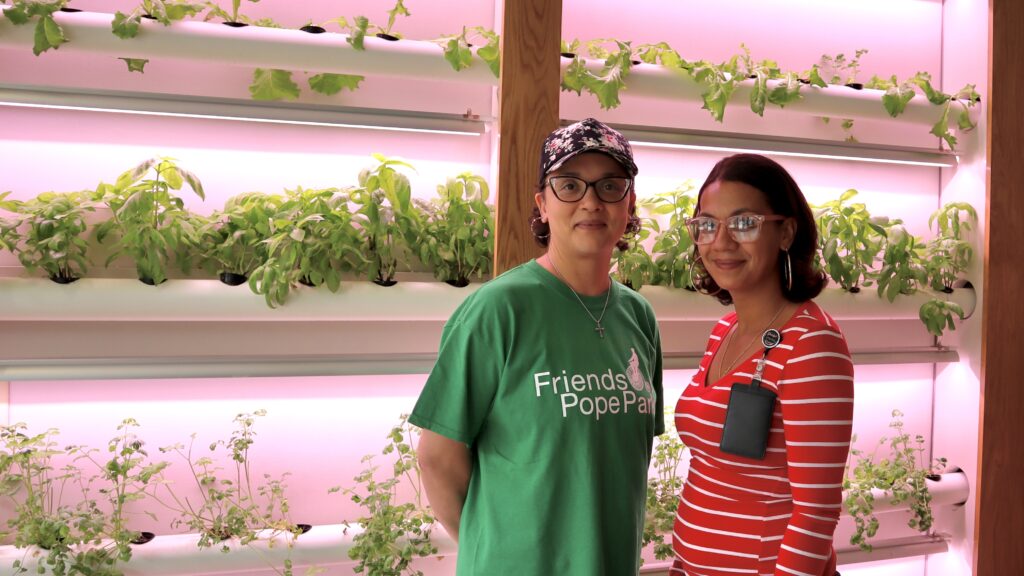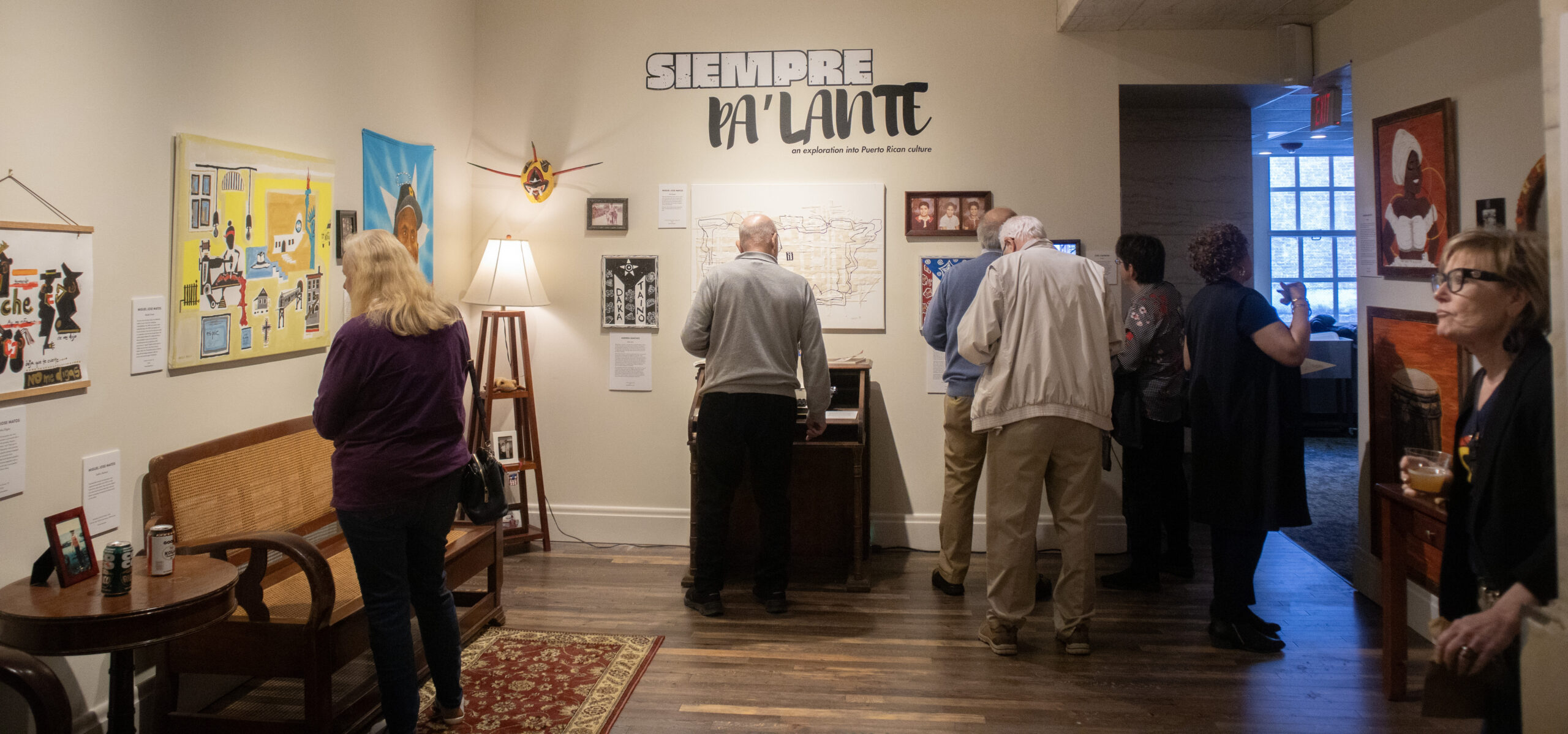CT Latino News produces and amplifies stories focused on the responses to the social determinants of health, which include healthcare access and quality, education access and quality, social and community context, economic stability, along with one’s built environment.
HARTFORD — On a typical weekday afternoon, a resident walked into the Family Wellness Center at 590 Park Street, seeking medical assistance. Located on its first floor, the Hartford Healthcare Neighborhood Clinic welcomed him in for a walk-in appointment.
Neighborhood Health Clinic Care Manager Nidia Rivas learned that he had been experiencing eyesight issues for about six months. He also shared with Rivas that he was undocumented, so he didn’t have insurance to cover medication that he might need, and he only had $20 on him.
“We see a lot of undocumented residents,” Rivas told CT Latino News. “I’ve been doing this for three months, and the resources are so limited. It’s like there’s nothing out there.”
With its grand opening in August 2023, the Hispanic Health Council Family Wellness Center has quickly and naturally integrated itself within the community as an essential resource, offering much-needed, robust services that are tailored to the Frog Hollow area and surrounding communities.
“Physically and financially, the Hispanic Health Council were the ones to build the Family Wellness Center, but we would not have been able to do it without the input of the community,” explained the center’s manager, Teresita Marquez.
For decades, the Hispanic Health Council has sought to provide accessible and culturally resonant services to local marginalized populations, which remain largely underserved across the state.
Hartford is home to one of the state’s largest Hispanic and Black communities, as they represent 80% of the capital’s population. Hartford also sees significant educational, economic, physical, and mental health disparities compared to the state’s average, according to DataHaven.
Housed in the heart of Hartford, the center partners with numerous community organizations—such as Hartford Healthcare—to support residents’ well-being holistically. Its diverse scope of free services aligns with the Council’s philosophy that residents’ health and well-being are multifaceted.
Serving about 15 to 20 people daily, the center prides itself on having a bilingual staff who majorly identify as Latino and are from the local community or from similar neighborhoods.
Marquez said it’s critical that residents in underserved communities receive services run by individuals who relate to their experiences and share their cultural identities. This fosters a newfound sense of trust that is historically missing.
“Lots of cultures have fears of healthcare [services] for previous histories within their race,” echoed System Manager of Neighborhood Health Operations Dawn Filippa. “It’s really about breaking down those barriers. I think it’s a little bit less intimidating walking into here than a big office and [wondering] ‘how am I going to be treated?’”
The center gets especially busy on days the Neighborhood Clinic is open, seeing about 30 to 35 residents come in, said Marquez.
At the clinic, Rivas spends her day connecting patients with community resources, offering information in English and Spanish, and assisting them with things like scheduling appointments or calling their pharmacy. She said that these “small” tasks can be more difficult and time-consuming for residents in the local community.
“You can provide them with the information, but what if [providers] don’t answer the phone, or if [patients] don’t speak English and they couldn’t find somebody to translate…Once they make those appointments, can you get to them?” Rivas said.
Rivas mentioned Veyo, a non-emergency medical transportation service that’s covered by certain insurances like Husky and Medicare. However, about 21% of Hartford residents aged 18 to 64 are without any health insurance—compared to the state’s and Greater Hartford’s average of 10%. In 2023, Latino adults in Greater Hartford were twice as likely to lack health insurance than the rest of the region and state.
DataHaven’s Hartford 2023 Equity Profile pointed out that Black and, particularly, Latino people are less likely to have health insurance than White people due to differences in workplace benefits, income, and eligibility factors—such as U.S. Citizenship status.
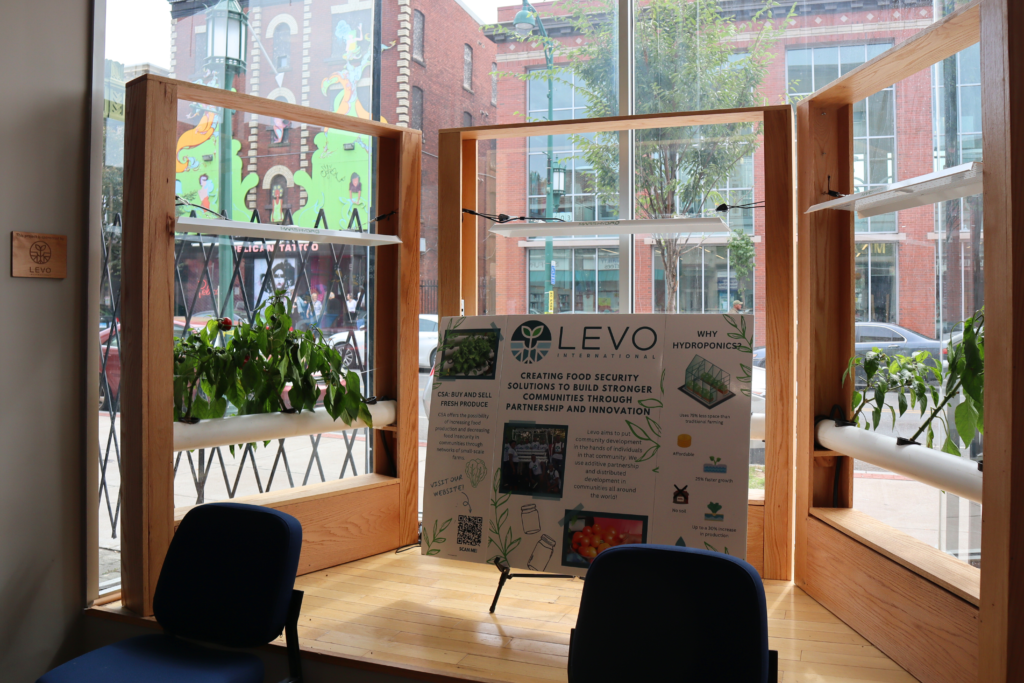
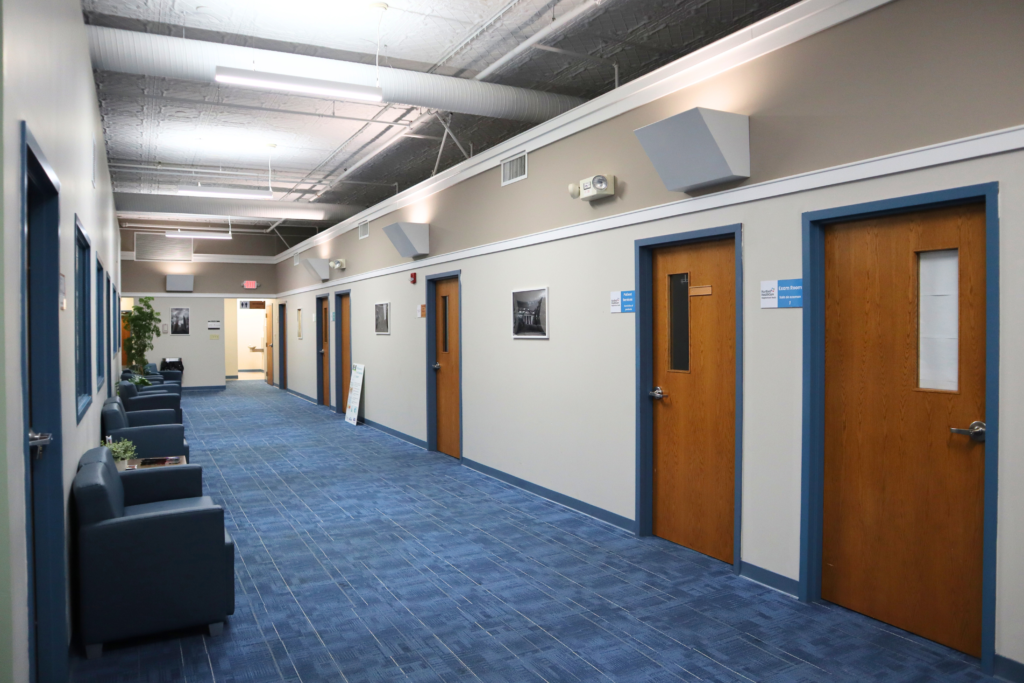

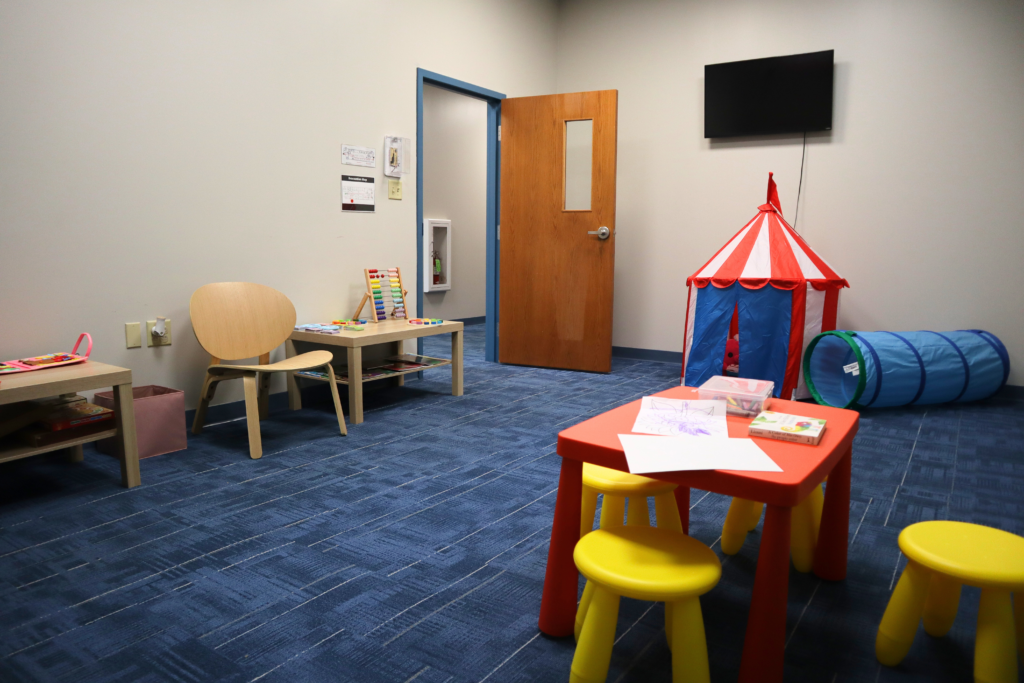
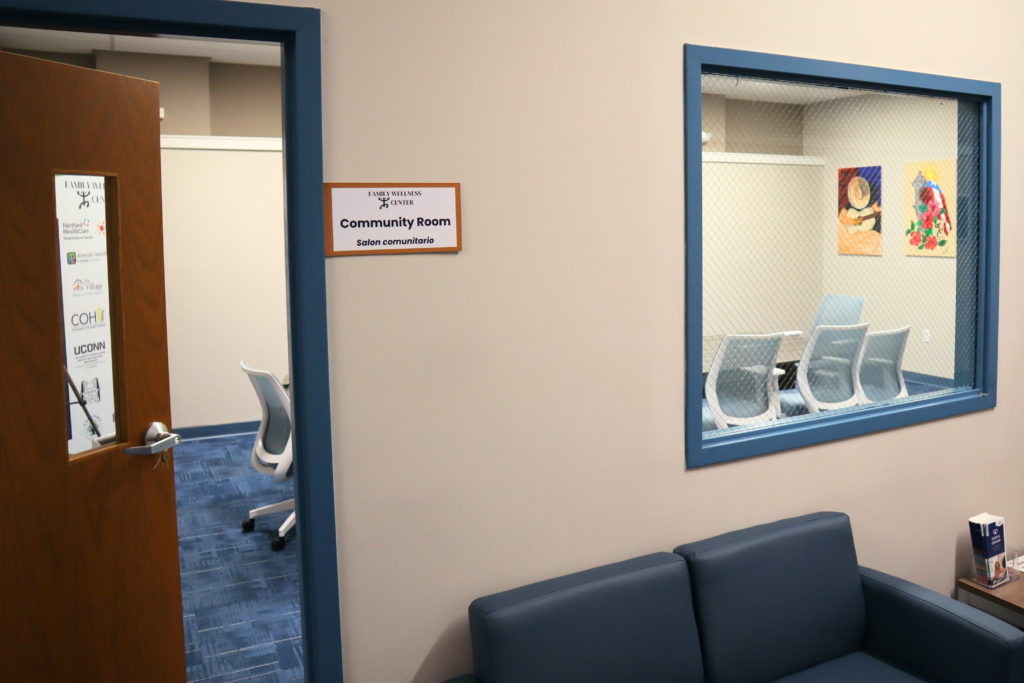
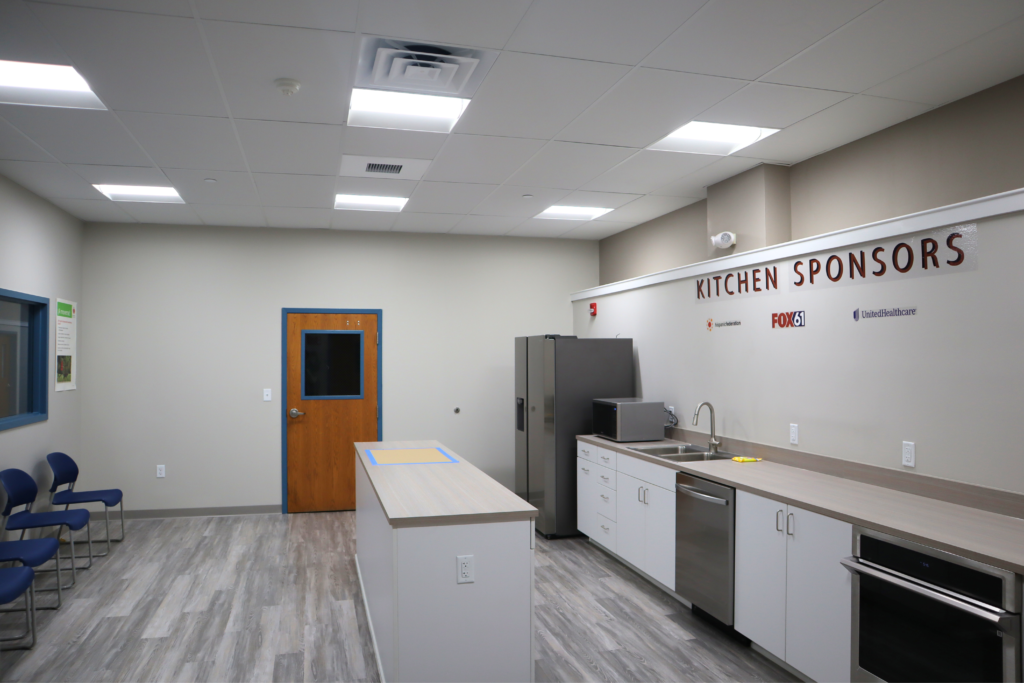
Rivas also emphasized the importance of language, especially in healthcare settings. “Once they hear you [speak Spanish], it’s like, ‘Oh, I’m home,” she said of residents’ experiences at the Frog Hollow Neighborhood Clinic.
Rivas recalls speaking in Spanish with the patient who walked in with long-term eyesight issues, listening to his concerns and past difficulties with reaching medical support.
“That’s one thing that the clinic does; we take time,” said Rivas. “We could be there with just one person all day. Sometimes, they just come in and sit here and talk to us. And we haven’t been here that long…[but] they can feel comfortable talking to us. Because if you think about a lot of the providers, they don’t have time to talk to you.”
Rivas spoke with another provider at the clinic, explaining the patient’s circumstances. That provider called “so many different people” until she made an appointment for the patient in West Hartford to see an ophthalmologist.
The appointment was on the same day, but the patient did not have transportation. So, another Neighborhood Clinic staff member used the Lyft app to request a car for him. They waited outside with the patient for the car to come and then explained the situation to the driver.
“I love this about this place. You know, we all want the same thing. We all want to help them. So, we get cases like that and [others] that we have to call the ambulance, and they will come pick up the patient because that’s how bad they are. Some patients just come in to say hi. It’s one extreme to another.”
Neighborhood Health Clinic Care Manager Nidia Rivas
The center’s practice of culturally competent care includes having multilingual staff from the community or similar communities, being generous and flexible with time and resources, recognizing and respecting cultural traditions and values, and anticipating and understanding people’s needs, which comes from knowing the local community and what common barriers its residents face.
Moreover, the Neighborhood Clinic’s commitment to accessibility and inclusivity goes beyond just its services.
Residents also visit the center for appointments with The Village, to attend classes hosted by Goodwin College, for hands-on hydroponic gardening with the support of Levo International, to join community events like Domino Tournaments, and more—all completely free. But some locals walk in just to greet its staff and spend time within the community.
“We try to incorporate a little bit of everything,” shared Marquez. “We think about their physical health, their financial health, their spiritual health, their occupational health. We try to partner with somebody who’s going to take care of each one of those domains. So, when somebody walks into the building, and they are lacking the financial domain, we can say, ‘hey, we have financial literacy classes’. So, we really try to take into consideration the person as a whole…”
